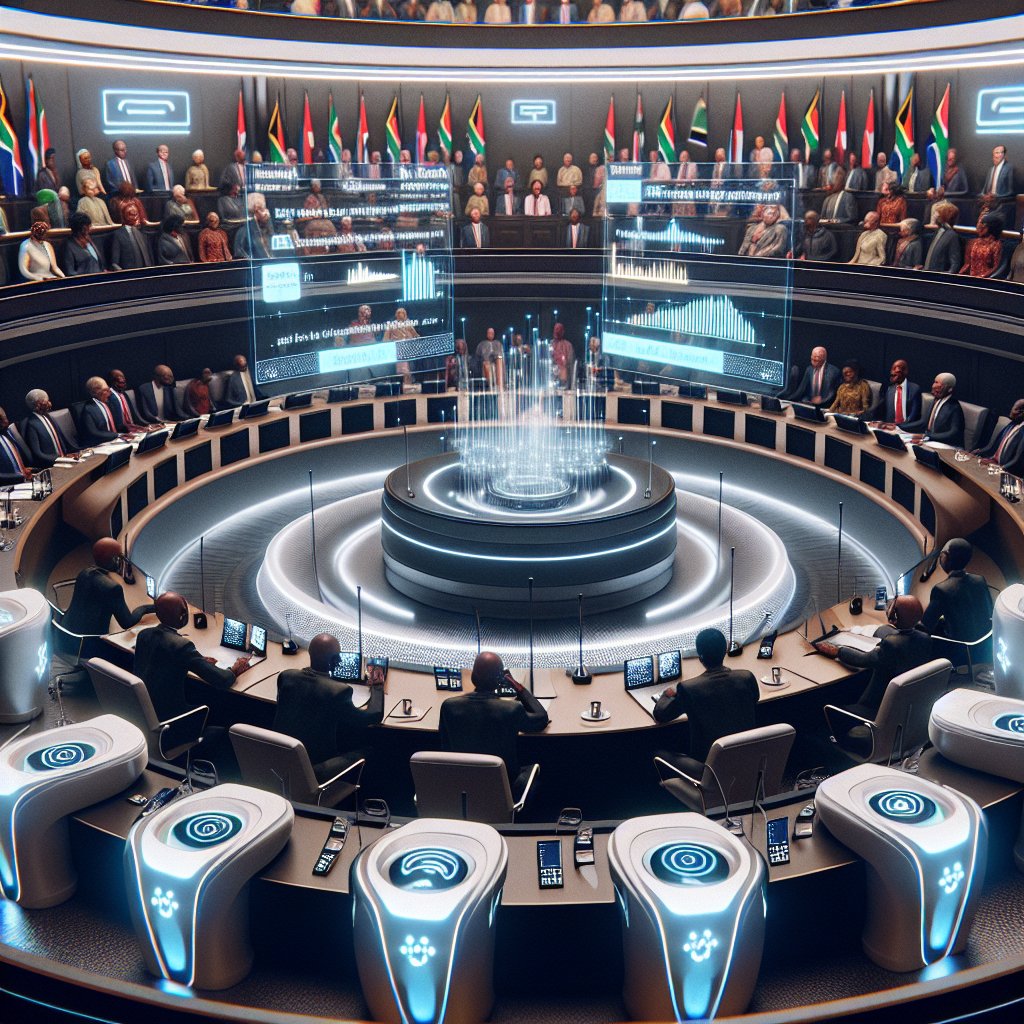Image created by AI
South African Parliament Considers AI Solutions for Interpretation Services Amid Staff Shortages
In a bold move to address the persistent challenges of providing adequate interpreting services within its legislative sessions, Parliament in South Africa is contemplating the integration of artificial intelligence (AI) solutions. Masibulele Xaso, the Secretary for the National Assembly, has recently discussed the issue with Members of Parliament, shedding light on the existing deficiencies and potential technological remedies.
The South African Parliament, comprising the National Assembly and the National Council of Provinces (NCOP), is constitutionally mandated to facilitate multilingual debates and communications. Presently, the institution requires at least 44 interpreters to efficiently interpret plenary proceedings, however, it is currently operating with only 27 interpreters, resulting in a noticeable deficit.
The gap in services is even more pronounced when considering committee meetings, which presently offer interpreting services only upon request. Xaso indicated that if interpreting were to become a standard feature for all committees, an overwhelming total of 396 interpreters would be necessary — a target that the institution regards as unfeasible.
The deficiency becomes particularly evident during busy parliamentary periods characterized by mini-plenaries and simultaneous sittings of the National Assembly and the NCOP. To mitigate the shortfall, freelancers are temporarily employed, but this solution is not without its limitations, particularly when it comes to languages such as Xhosa or Zulu.
In a meeting dedicated to this pressing issue, MPs from different parties, including the MK Party, expressed frustration over the inadequate interpreting services from English to local languages. Deputy Speaker Annelie Lotriet has vowed to collaborate with the staff to identify viable solutions, emphasizing the need for a detailed study on the latest technology and its cost-effectiveness.
Conversely, there has been pushback from MPs concerned about the employment of AI, doubting its ability to capture the nuances of advanced language, including idiomatic expressions. Among them is National Assembly Speaker Thoko Didiza, who nonetheless supports a thorough investigation into resolving interpretation problems.
Further, the Economic Freedom Fighters (EFF) MP Hlengiwe Mkhaliphi advocated for recruiting young interpreters for job creation instead of relying on outsourcing, while Nqabayomzi Kwankwa from the United Democratic Movement (UDM) voiced concerns over quality assurance and cultural respect towards indigenous languages.
Kwankwa pointed to the delicate balance of advancing technology and maintaining employment rates, citing the example of AI potentially undermining the integrity of African languages if not managed with care and sensitivity.
This proposed transition to AI-assisted interpretation could represent a seismic shift for the South African parliamentary processes, where it stands to redefine employment, technological reliance, and the protection of linguistic heritage.










